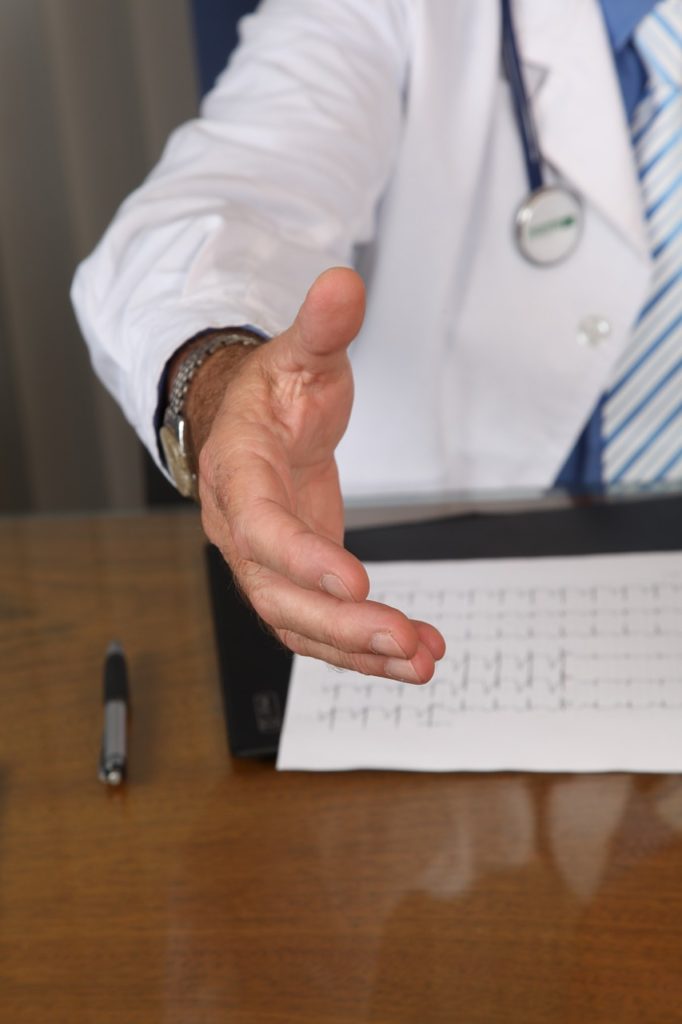
The 30 Day Chronic Illness Challenge was created by @cfs_zombie. Every day, there is a brand new writing prompt that focuses on chronic illness and/or what it is like to life with one (or with many).
I first learned about this Challenge when someone reblogged information about it onto my Tumblr dashboard. Today is Day 15, which means that when I post this blog I will have officially completed 1/2 of the 30 Day Chronic Illness Challenge!
Day 15: What would you say to people newly diagnosed with this illness?
Many people find that they feel a sense of relief when they are first diagnosed with a chronic illness. It is when you are first able to put a name to the myriad of symptoms you have been experiencing. There is, finally, something “official” that proves that you aren’t faking your symptoms. There is a (potential) course of treatment for the chronic illness (or, at the very least, a way of coping with the symptoms of it). Getting a diagnosis is good news!
But, shortly after the initial relief, you probably get scared. My advice to anyone who has been newly diagnosed with a chronic illness is simple. Don’t panic! There is something worrisome about realizing that you are a person who has a chronic illness. That can feel intimidating at first. Your life is about to change in many ways, and change can be stressful (even when the change is good). Things will, eventually, fall into place. In the meantime, you will learn the skills that you need to help cope with the times when you unexpectedly get really sick.
What would I say to people newly diagnosed with borderline anemia? Eat something!
A doctor gave me that advice shortly after I was diagnosed with borderline anemia. At the time, I found the advice to be annoying. I was avoiding eating because I had not yet figured out what foods I was allergic to. I also tend to lose my appetite when I am anemic (or getting close to it).
For me, it isn’t fun to eat when I am not hungry. Over time, I learned that skipping meals pushes me into anemia (especially during “that time of the month”). I also learned what foods I am allergic to. Now, when I start feeling the symptoms of anemia, I force myself to eat something that is allergy free.
There is another reason I’d advise a person newly diagnosed with borderline anemia to eat. One way to treat iron-deficient borderline anemia is to take an “iron pill”. (A vitamin that contains iron). Trust me, you don’t want to do that on an empty stomach!
What would I say to people newly diagnosed with severe allergies? I guess that would depend on what types of allergies the person was diagnosed with.
* Teach your loved ones how (and when) to administer your Epi-Pen. Those are the people you are most likely to be with when exposure to an allergen puts you into anaphylaxis. Talk them through how to use it. If your Epi-Pen came with a “test” pen (one that looks the same as a real one but doesn’t contain a needle or medication) give them the opportunity to practice with it.
* Embrace the allergy-free food options. There are tons of products that are gluten-free. I’ve found breads, hamburger buns, chocolate chip cookies, crackers, and pasta. Some of them are also soy-free, dairy-free, and/or egg-free. Find a brand that you like (and that doesn’t contain anything else you are allergic to). It’s a lot easier to avoid the temptation of eating a treat that you are allergic to, but really want to eat, if you have a “safe” substitute on hand.
* Don’t be afraid to ask a ton of questions when you dine out. It’s better to be seen as “that person with the food allergies” than to get sick from something that should have been safe (but turned out not to be). Many restaurants are starting to offer gluten-free menu options. Let the server know you have food allergies. He or she can guide you to safe food options. He or she can also alert the kitchen so the chef can use safe practices when preparing your food (and prevent cross-contamination).
* Take lots of naps. Some allergy medicines can make you tired. Breathing (and/or wheezing) on days when the pollen is high, the humidity is giving you sinus pressure, or when you get accidentally exposed to another environmental allergen, are exhausting. Give your body a break and take a nap.
What would I say to people who have been newly diagnosed with rheumatoid arthritis? Stay active, but don’t push yourself too hard. For example, one of my relatives who had rheumatoid arthritis told me that her doctor suggested that she keep her hands active. So, she spent a lot of time crocheting and playing solitaire with actual playing cards. I am of the impression that this helped keep the joints in her hands from stiffening.
I write a lot of blogs, and that is helping to keep my hands moving and active. Even so, I’ve noticed that when I stubbornly continue writing after the joints in my hands are screaming, it causes problems. I’ll hurt more than usual the next day.
The other advice I’d give is to forget about how long it takes a healthy person to do a specific task. You know that story about the tortoise and the hare? You’re the tortoise now. Slow and steady wins the race. Keep going, at your own pace. You will get there!
